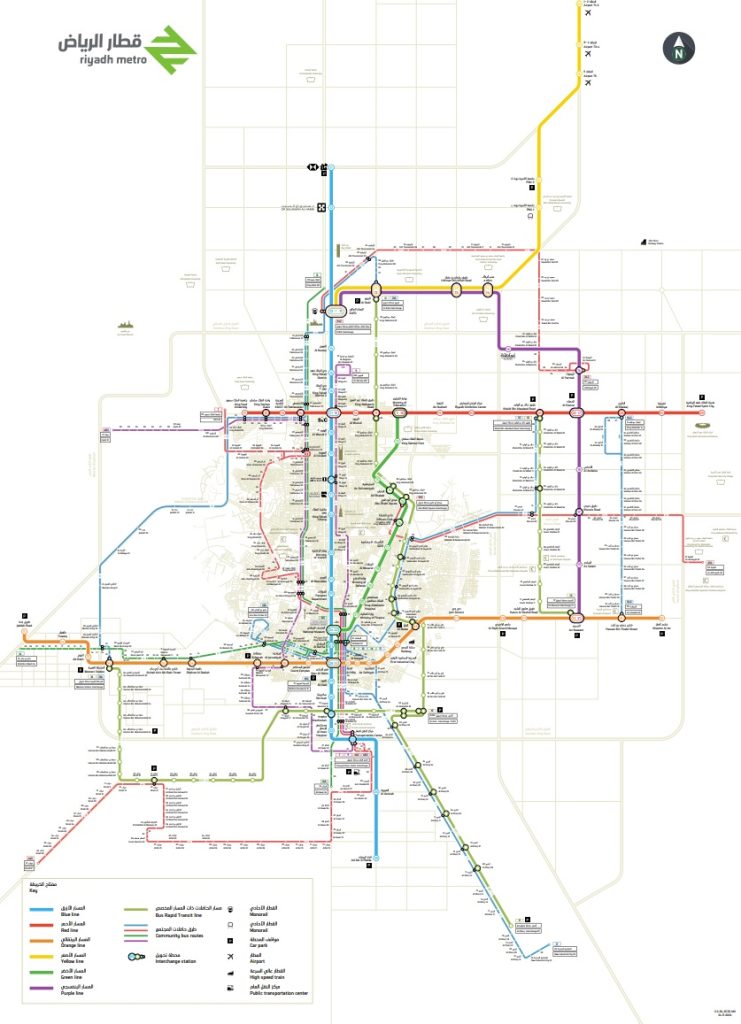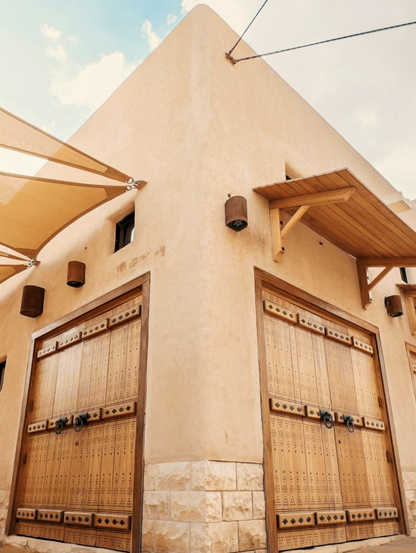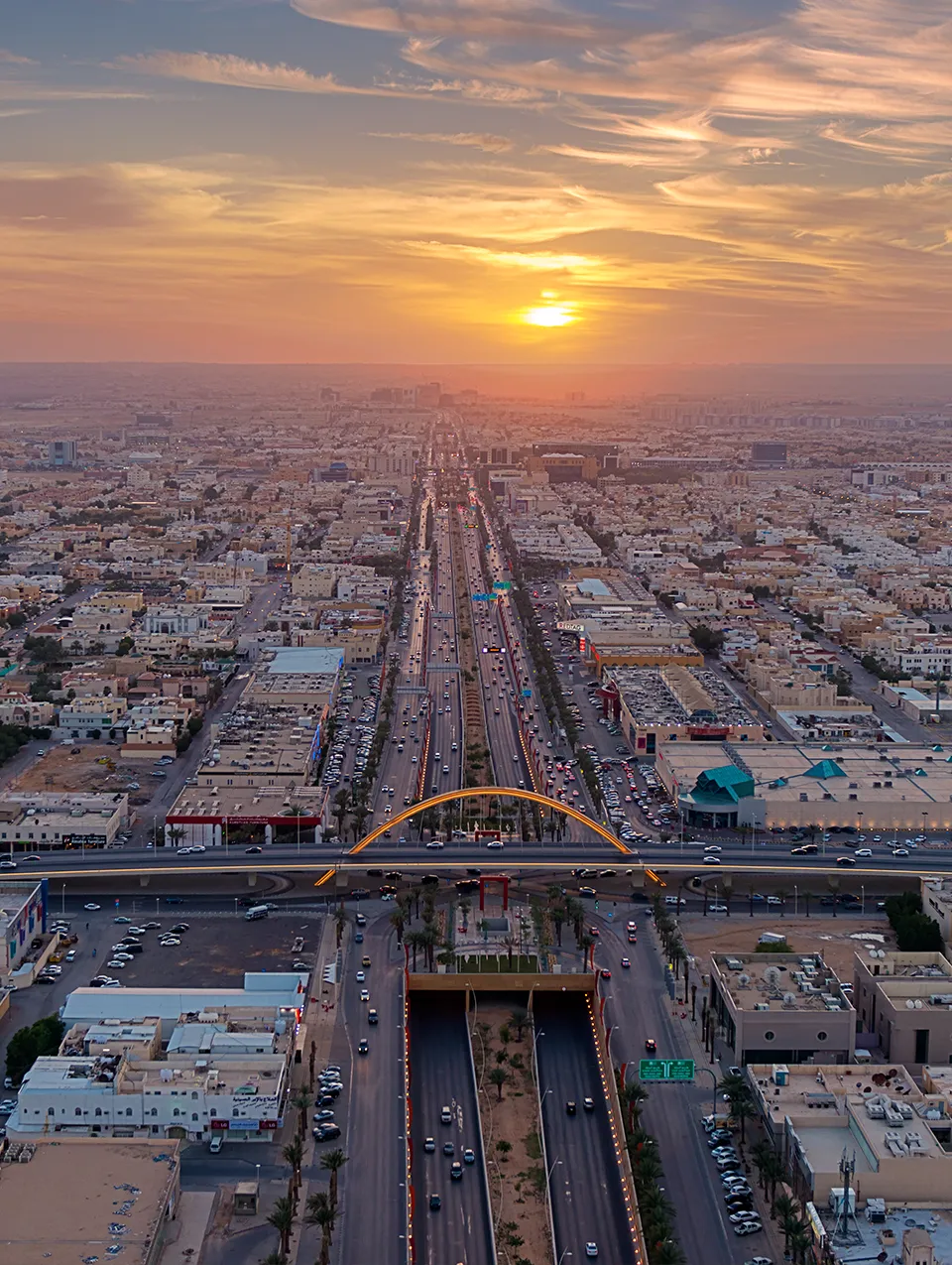HOME / PROGRAMS AND PROJECTS
King Abdulaziz Project for Riyadh Public Transport
Towards Sustainable and Integrated Urban Mobility
Marking a transformative shift in urban infrastructure, the King Abdulaziz Project for Riyadh Public Transport stands as one of the region’s largest and most ambitious public transport initiatives. Overseen and developed by the Royal Commission for Riyadh City (RCRC), the project delivers a modern, integrated, and intelligent transport network that serves both residents and visitors to the capital. It plays a pivotal role in reducing reliance on private vehicles, easing traffic congestion, and enhancing overall quality of life.
The project ecosystem comprises the Riyadh Metro and Riyadh Bus networks, which operate in seamless integration to provide comprehensive coverage across residential districts, economic centers, and key destinations, all within a framework that prioritizes sustainability and inclusivity.
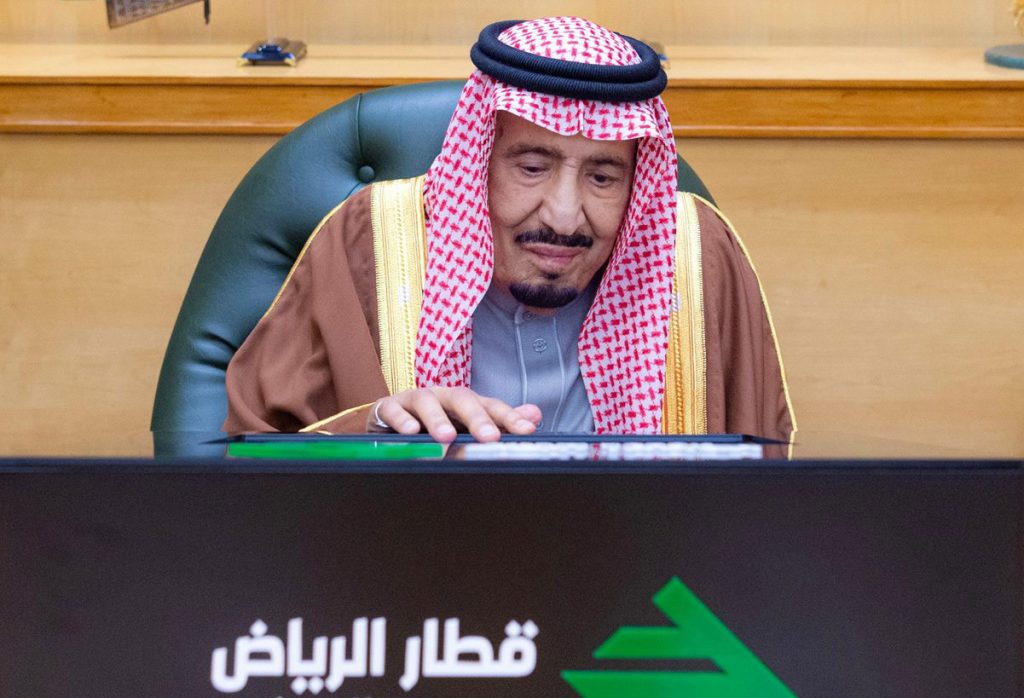
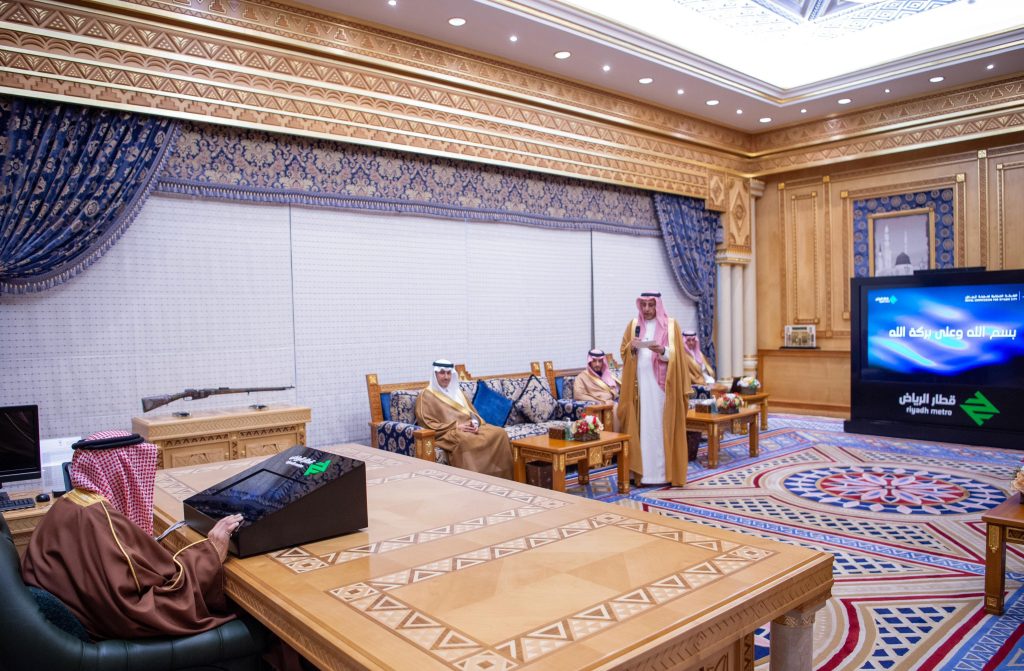
Custodian of the Two Holy Mosques, King Salman bin Abdulaziz Al Saud, inaugurated the Riyadh Metro Project on Wednesday, Jumada al-Ula 25, 1446 AH, corresponding to November 27, 2024.
Project Objectives
King Abdulaziz Project for Riyadh Public Transport delivers a modern public transport network that provides efficient and reliable mobility alternatives. The project aims to reduce excessive reliance on private vehicles by pursuing the following objectives:
- Providing comfortable, cost-effective, and practical mobility options for residents and visitors.
- Alleviating traffic congestion and reducing travel times across the city.
- Enhancing connectivity between residential neighborhoods and key districts, including universities, hospitals, government facilities, and major destinations.
- Supporting the city’s economic growth and sustainable urban development.
- Promoting environmental sustainability through the reduction of carbon emissions.
Riyadh Metro Project
Riyadh Metro Network
Serving as the backbone of the city’s public transport system, the Riyadh Metro boasts a daily capacity of 3.6 million passengers. The network spans 176 kilometers across 6 lines and includes 85 stations, designed according to unified engineering standards that integrate advanced innovation with a strong commitment to sustainability.
Metro Lines
The metro lines provide extensive coverage, seamlessly connecting the capital’s key landmarks, including King Khalid International Airport, the King Abdullah Financial District (KAFD), universities, the city center, and high-density urban areas.
- Blue Line (Line 1): Al-Olaya – Al-Batha – Al-Hayer (38 km).
- Red Line (Line 2): King Abdullah Road (25.3 km).
- Orange Line (Line 3): Al-Madinah Al-Munawarah Road – Prince Saad Bin Abdurrahman I Road (40.7 km).
- Yellow Line (Line 4): King Khalid International Airport Road (29.5 km).
- Green Line (Line 5): King Abdulaziz Road (12.9 km).
- Purple Line (Line 6): Abdurrahman Bin Awf Road – Sheikh Hassan Bin Hussain Bin Ali Road (29.7 km).
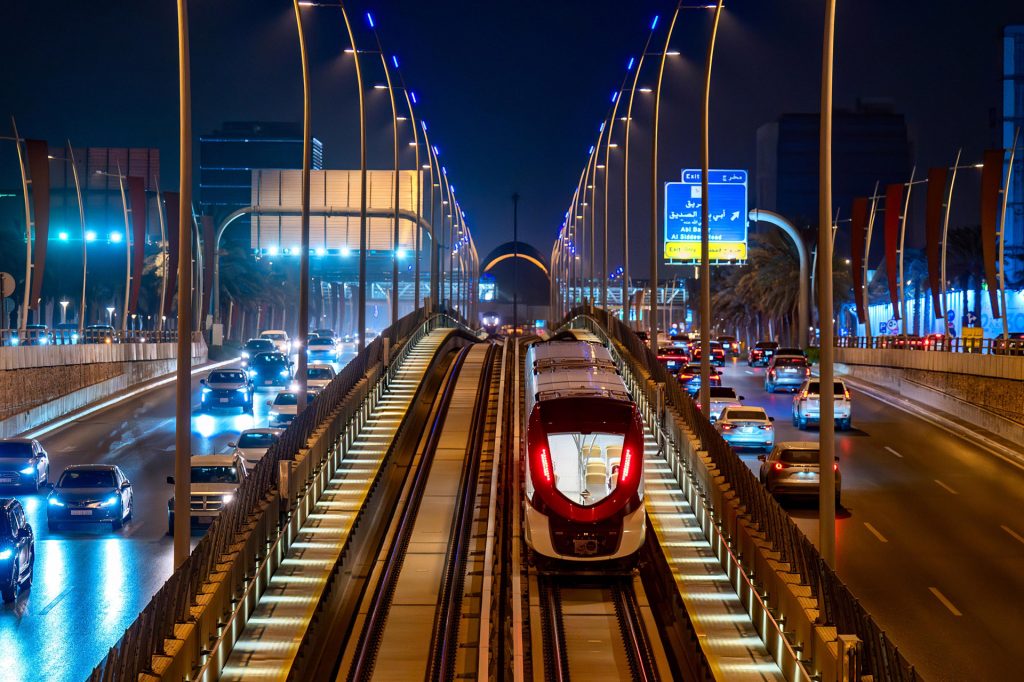
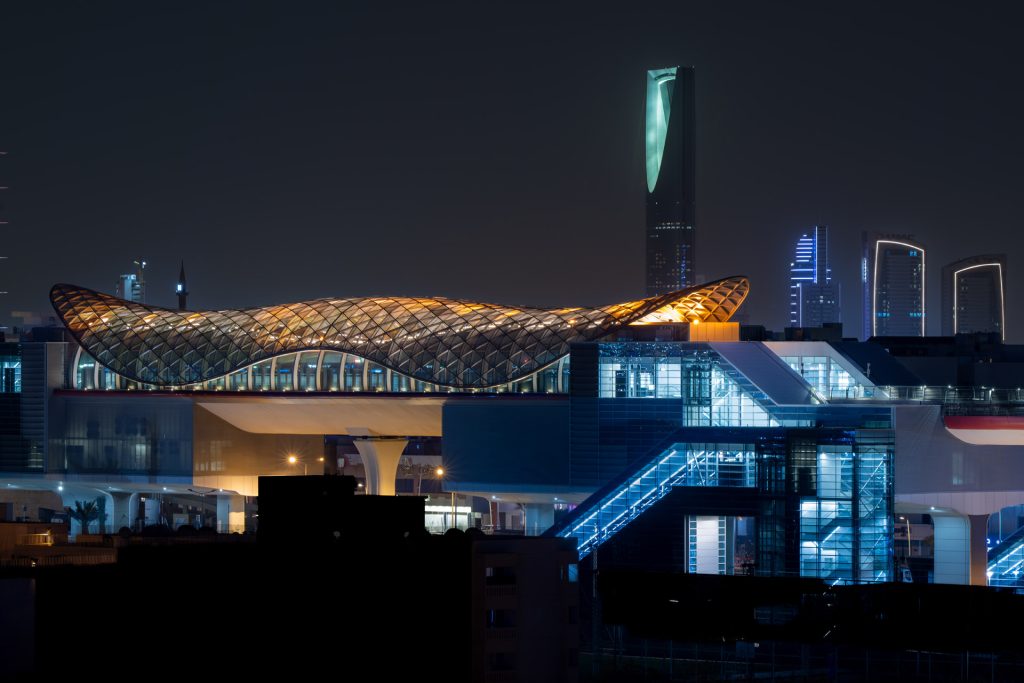
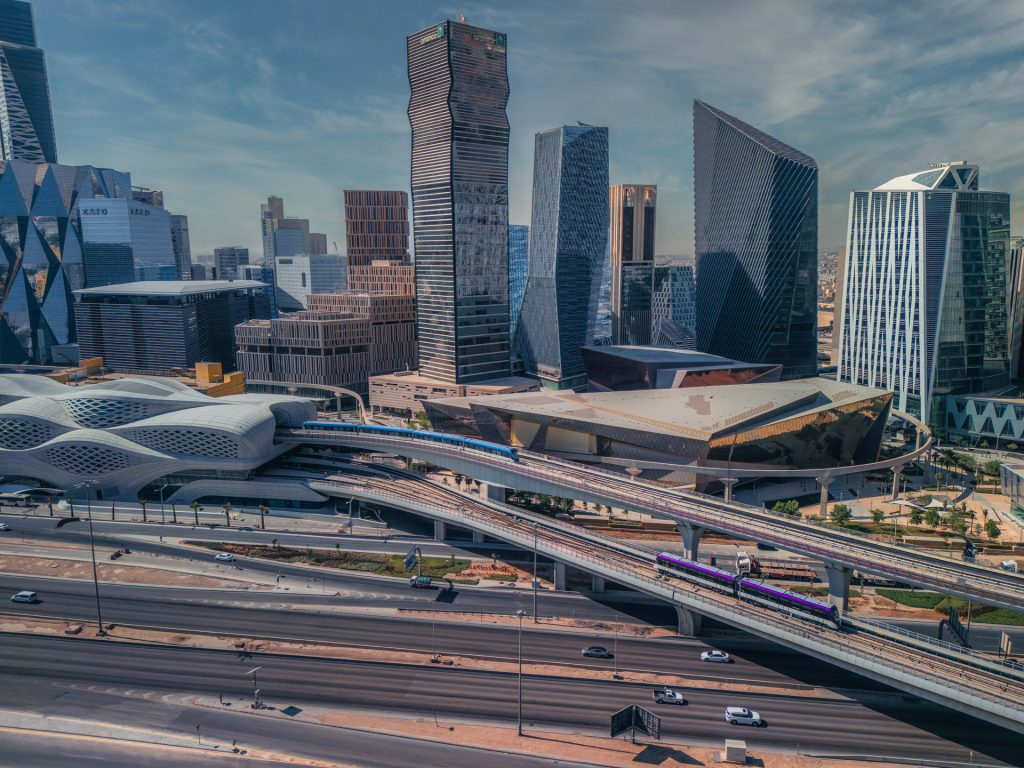
Main stations
The network features four major stations that serve as key intermodal transit hubs, where multiple metro lines and bus routes converge. These stations are equipped with a comprehensive range of amenities – including public transport parking, ticketing facilities, customer service centers, retail outlets, and government service offices – ensuring a seamless and efficient passenger experience.
- Qasr Al-Hukm Station
- King Abdullah Financial District (KAFD) Station
- Western Station
- STC-Al-Olaya Station
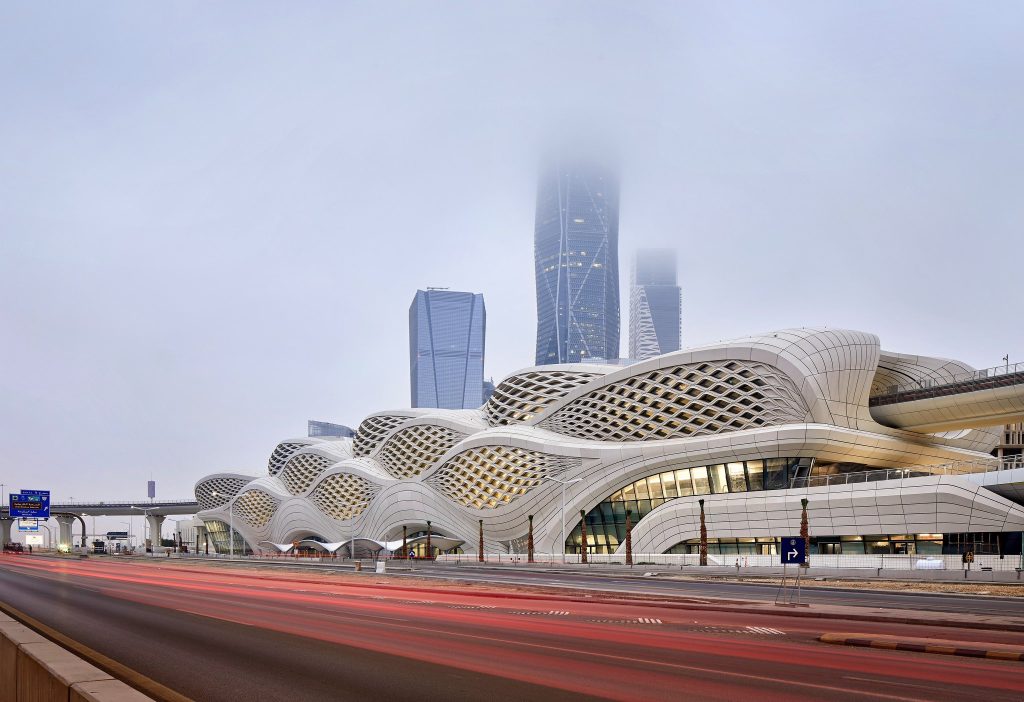
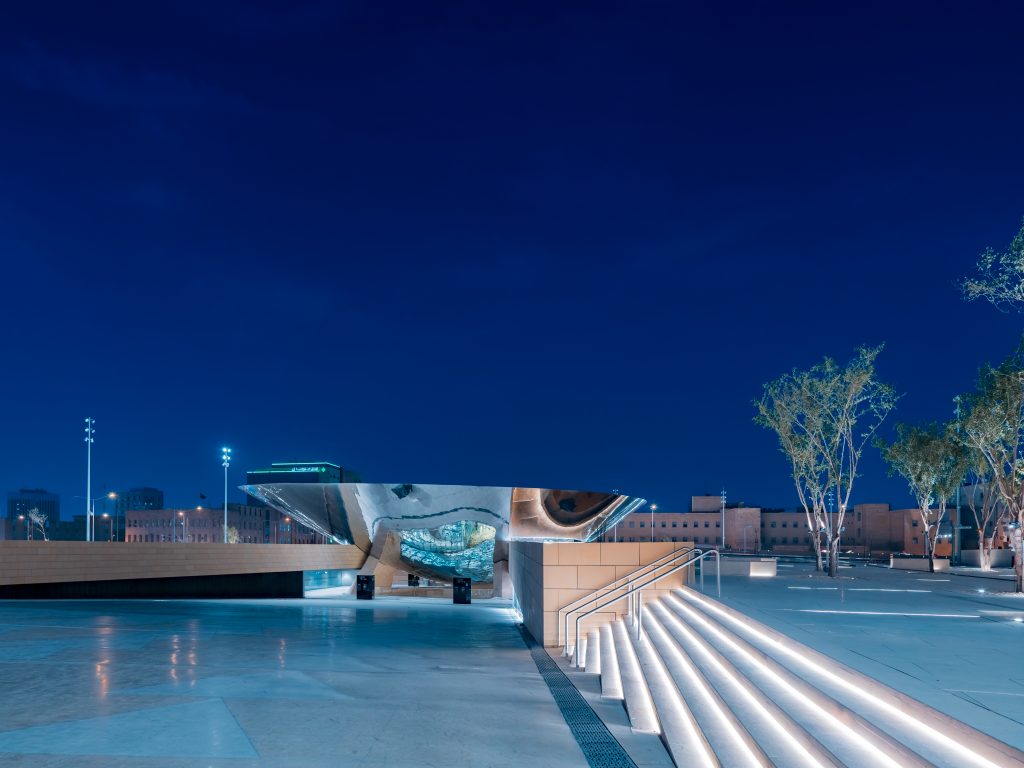
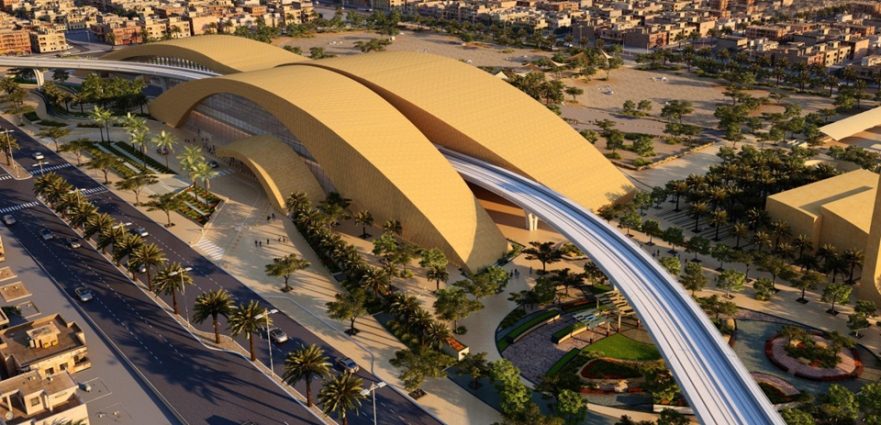
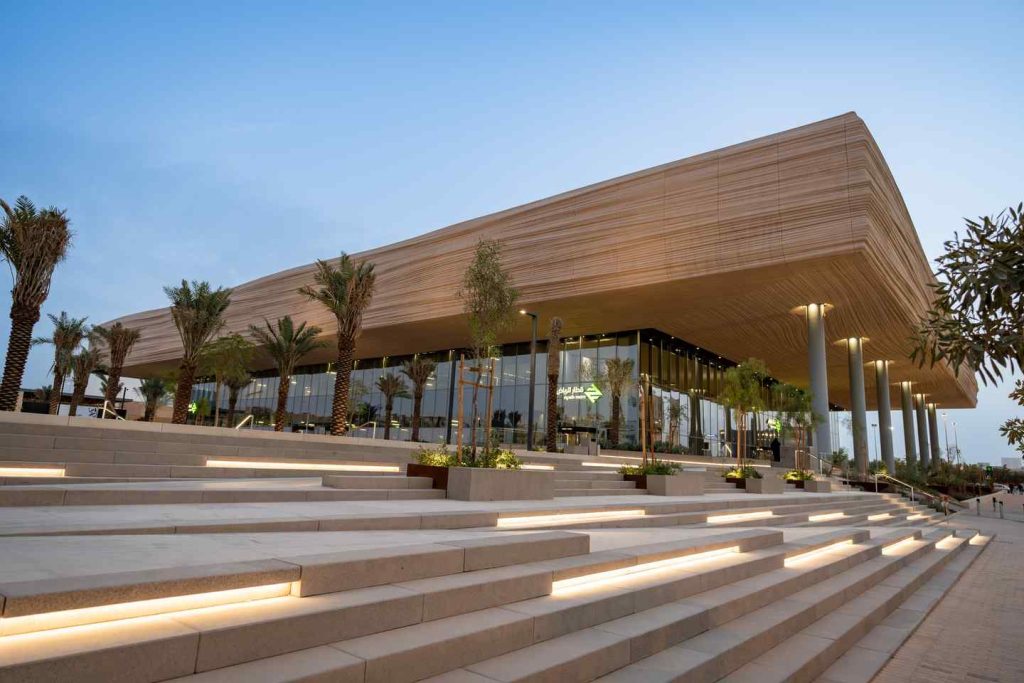
Metro cars
The project features 190 fully automated trains that are uniformly designed and built for high passenger comfort and energy efficiency specifications.
- 74 Inspiro sets for Lines 1 and 2, supplied by Siemens
- 47 Innovia Metro 300 trains for Line 3, supplied by Bombardier
- 69 Metropolis sets for Lines 4, 5 and 6, supplied by Alstom
Amenities
Specifications of metro cars have included the world’s latest technologies. All metro cars share a uniform design, with colors following the color of their designated line. Passenger comfort has been a central element to all metro car producers.
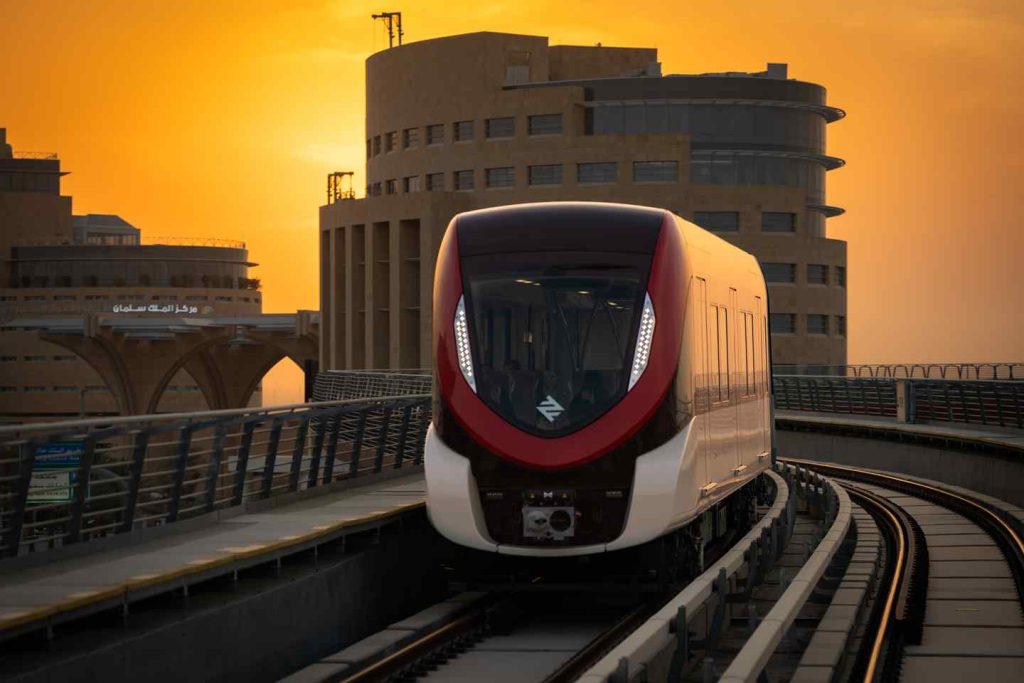
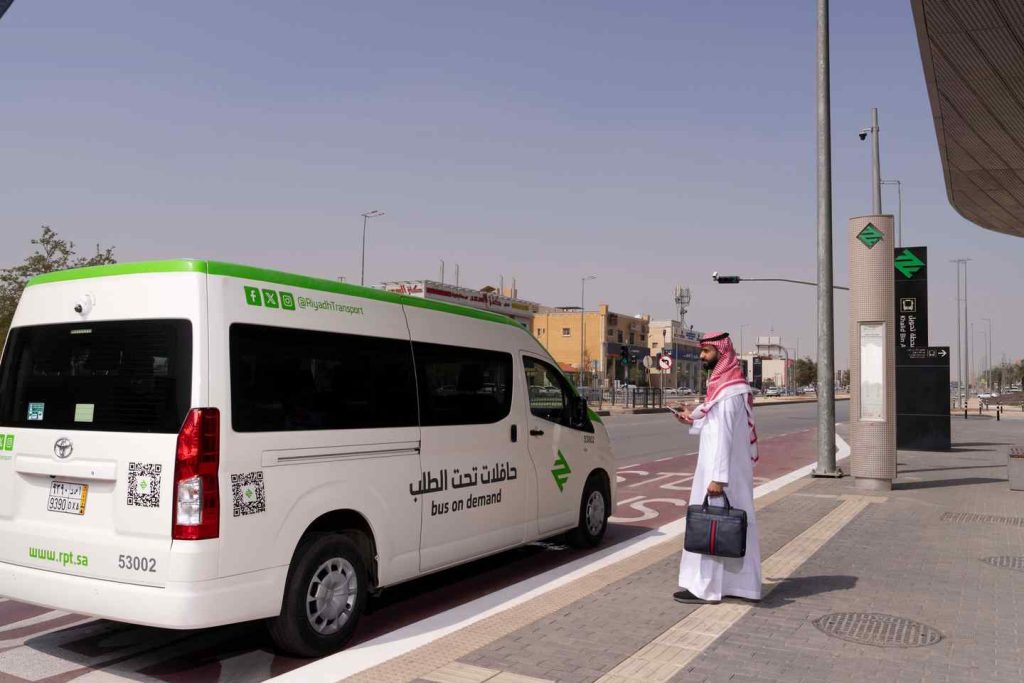
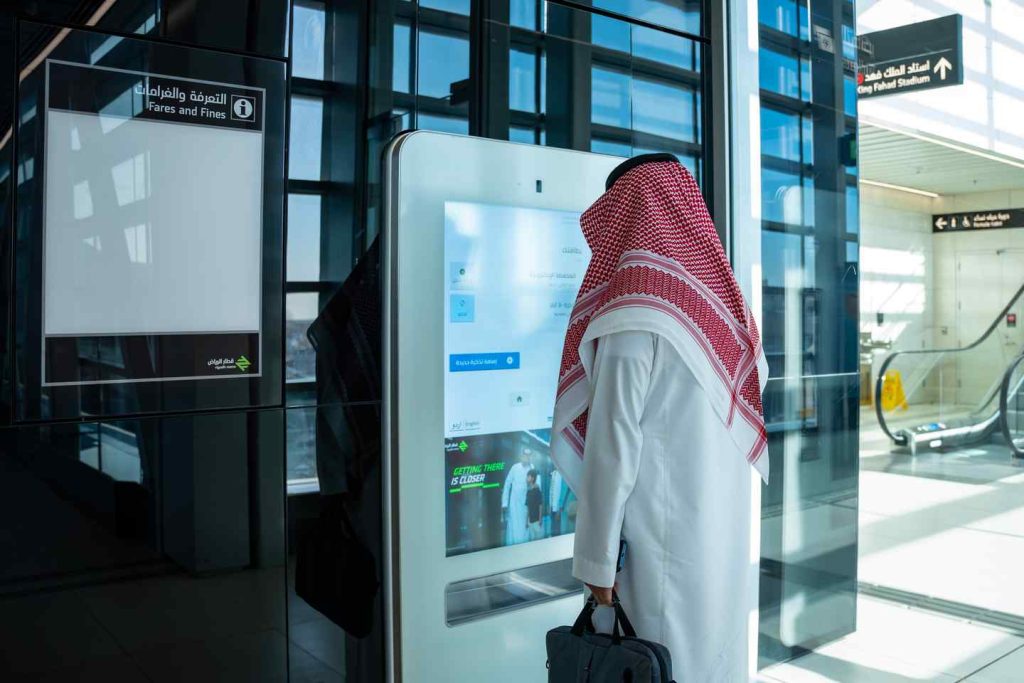
Safety
Each train and station are equipped with advanced surveillance systems, firefighting equipment, tunnel safety systems, and sophisticated communications between network and the Operations & Control Center. The trains have been subjected to intense testing to ensure they can withstand the city’s harsh climatic conditions.
Supporting infrastructure
Parking
19 park & ride locations with a capacity of 400-600 cars each, have been dedicated to facilitating the use of the metro network. The park & ride locations are well-distributed throughout the city to simplify commutes.
Safety and security
The metro network meets all safety and security requirements for passengers and facilities; all metro cars and stations provides advanced security systems, which include CCTV-cameras and early warning systems, firefighting systems, tunnel safety systems and a communication system that supports real-time communication with the Control & Operation Center and security personnel.
Depots
The Riyadh Metro project includes the establishment of seven parking and maintenance centers, including workshops for regular maintenance, offices for the staff and parking areas for the metro train fleet, as well as control centers. Five advanced centers operate, control, and monitor the metro lines, trains, stations, and other project facilities
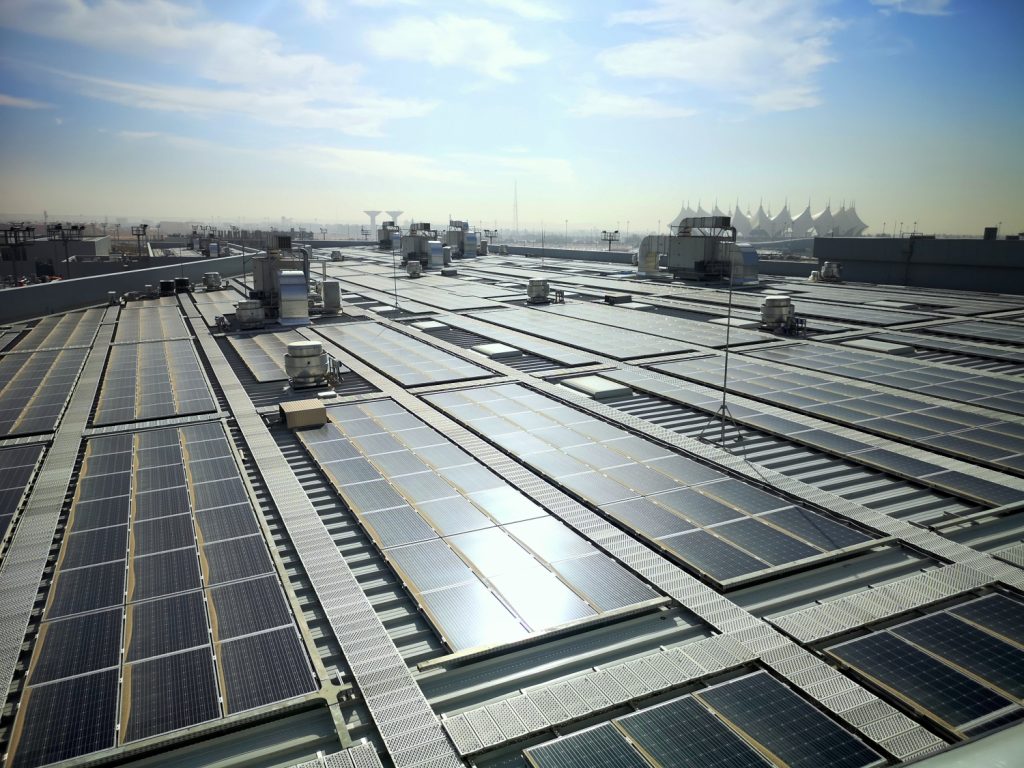
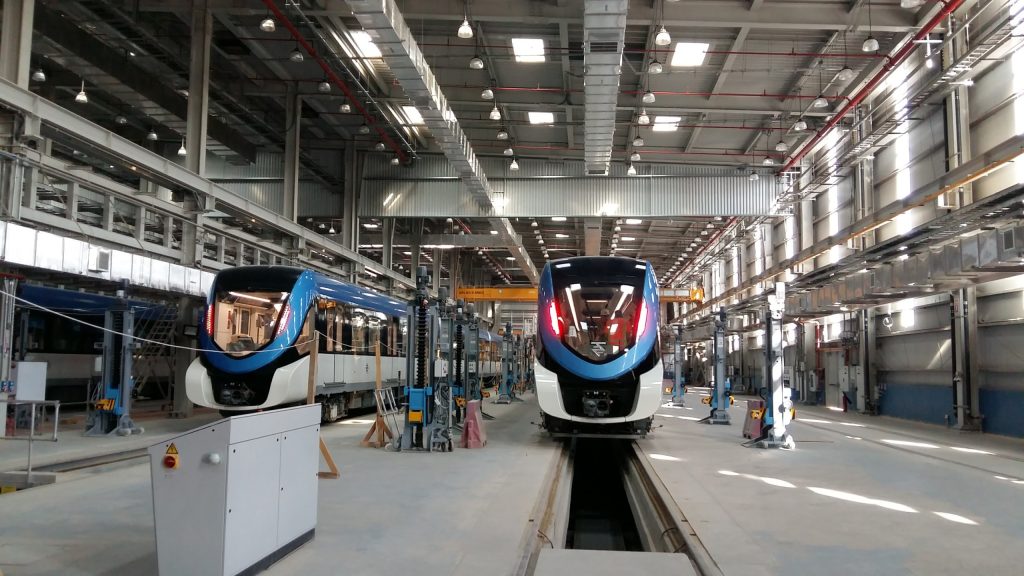
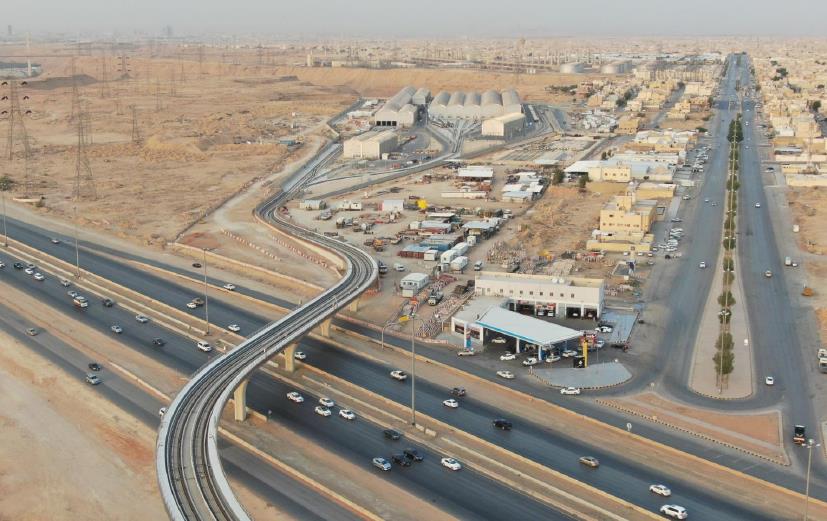
Sustainability
The Riyadh Metro Project is a beacon of sustainability in urban transportation. With a focus on efficiency and environmental consciousness, this groundbreaking project aims to revolutionize commuting in the city. By providing a clean and reliable alternative to traditional vehicles, the metro system significantly reduces carbon emissions, thereby mitigating the urban heat island effect and fostering a healthier environment for all. Comprising six expansive lines that blanket the city, this project not only enhances connectivity but also alleviates congestion on the streets, promoting a more sustainable urban landscape.
Moreover, the design of the metro stations sets a new standard for eco-friendly infrastructure. Each station is designed to meet sustainability benchmarks, incorporating measures to reduce energy and water consumption, enhance indoor air quality, utilize local materials, and promote waste recycling. Green materials with low volatile organic compound emissions are prioritized, while the integration of renewable energy sources such as photovoltaic cells further underscores the project’s commitment to sustainability. For instance, the installation of 5448 m2 of photovoltaic panels in West Depot (Line 3) powers 33% of the facility’s energy needs, exemplifying the fusion of innovation and environmental responsibility.
Western Metro Station
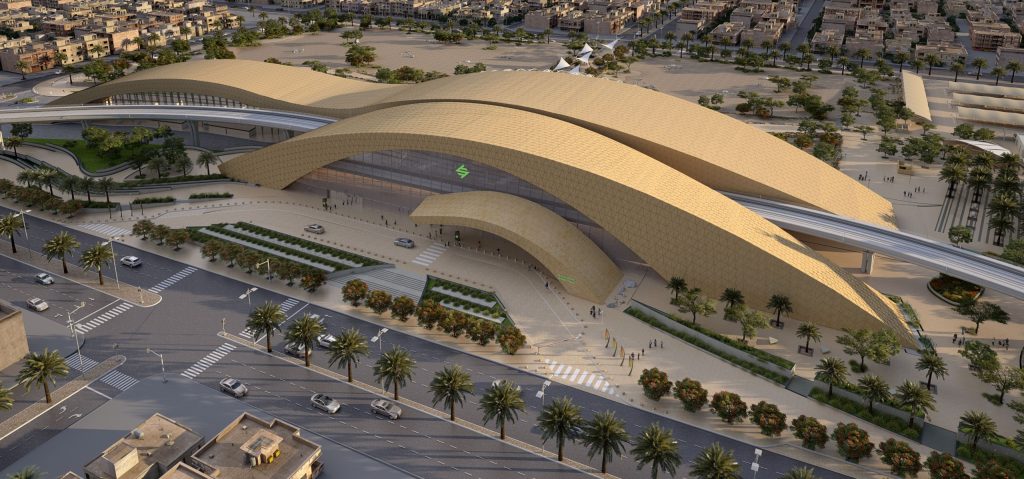
The Western Metro Station succeeded in the design phase to achieve a remarkable 16.6% energy saving compared to ASHRAE 90.1 (2007) standards, with 2.08% of that coming from on-site renewable energy generation. Additionally, the station boasts a 68% reduction in outdoor water usage, complemented by 50% of indoor water conservation thanks to the use of highly efficient fixtures.
The design considered 20% recycled content, 20% local materials, and low VOC of adhesives, sealants, and paints and avoiding CFC in chilled water.
Notably, construction waste was reduced by 20% through recycling, with ambitious plans to sustain the use of eco-friendly materials throughout the project’s operational phases to minimize the environmental footprint in the long term.
The Station’s design capitalizes on this sustainable vision, along with the relevant initiatives undertaken during the design and construction phases, with a definitive aim of securing LEED Silver certification.
Qasr Al-Hukm District Station
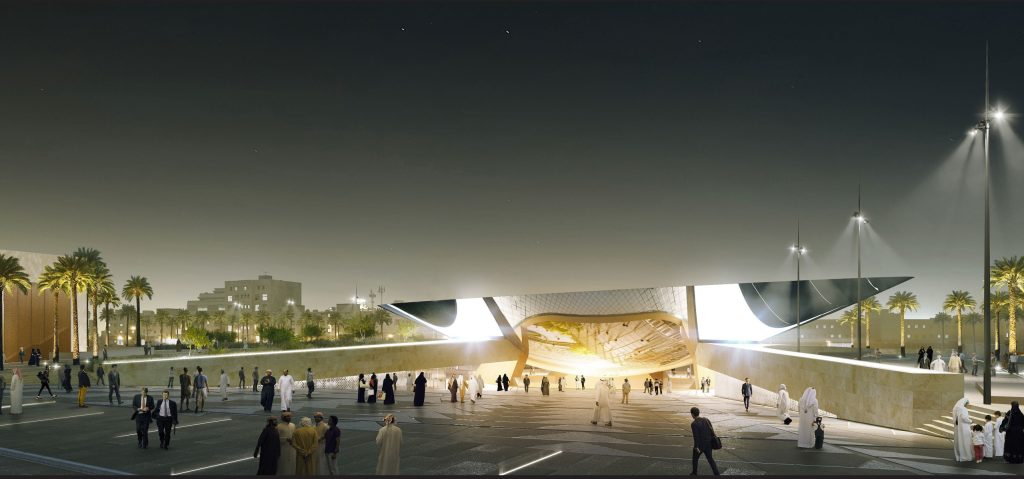
The Qasr Al-Hukm District Station succeeded in the design phase to achieve a remarkable 16.8% energy saving compared to ASHRAE 90.1 (2007) standards, with 1.45% of that coming from on-site renewable energy generation. Additionally, the station boasts a 66% reduction in outdoor water usage, complemented by 40% of indoor water conservation thanks to the use of highly efficient fixtures.
The design considered 20% recycled content, 20% local materials, and low VOC of adhesives, sealants, and paints and avoiding CFC in chilled water.
Notably, construction waste was reduced by 20% through recycling, with ambitious plans to sustain the use of eco-friendly materials throughout the project’s operational phases to minimize the environmental footprint in the long term.
The Station’s design capitalizes on this sustainable vision, along with the relevant initiatives undertaken during the design and construction phases, with a definitive aim of securing LEED Silver certification.
King Abdullah Financial District (KAFD) Metro Station
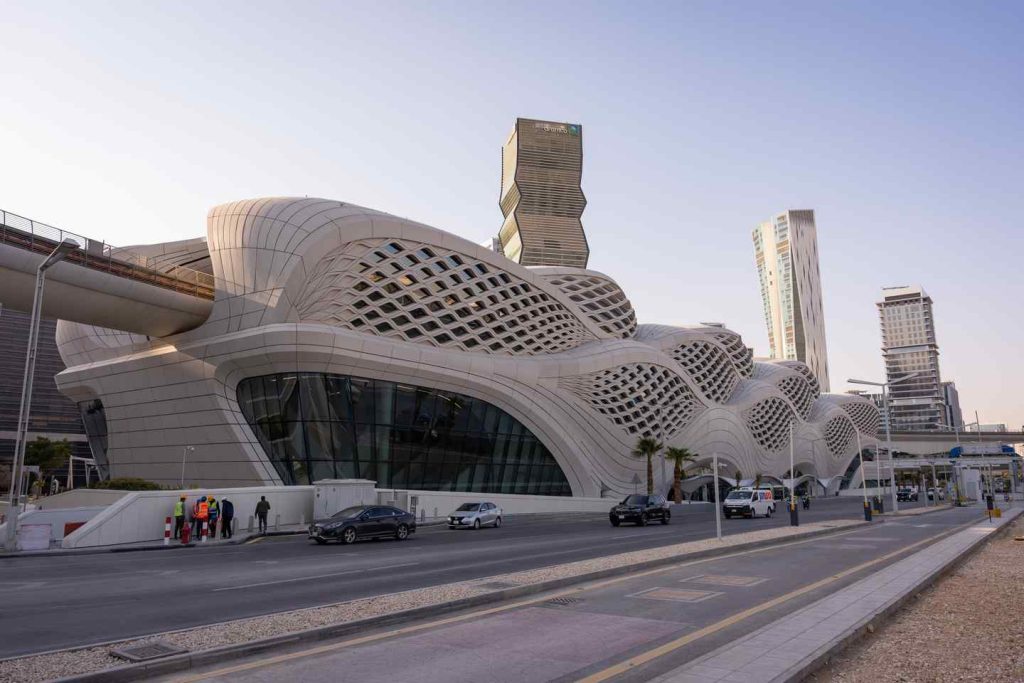
The KAFD Metro Station succeeded in the design phase to achieve a remarkable 34% energy saving compared to ASHRAE 90.1 (2007) standards, with 1.45% of that coming from on-site renewable energy generation. Additionally, the station boasts a 54.7% reduction in outdoor water usage thanks to the use of highly efficient fixtures.
The Station’s design focused on utilizing materials featuring recycled components to drive the demand for sustainable construction materials and support the circular economy.
The Station allocates preferred parking spaces for low-emitting and fuel-efficient vehicles for 6.19% of the total parking capacity, encouraging the use of green transportation.
The Station’s design capitalizes on this sustainable vision, along with the relevant initiatives undertaken during the design and construction phases, with a definitive aim of securing LEED Silver certification.
Riyadh Bus Project
The bus network is fully integrated with the metro network, connecting the districts of Riyadh with the business and commercial centers. With the capacity to transport over 500,000 passengers, the bus network serves as a main means of transportation within residential districts. Providing comfortable and efficient transportation for all residents of Riyadh, the bus network enhances city mobility and reduce traffic congestion and environmental impact from individual vehicles.
Riyadh Bus Network
The bus network provides comprehensive city-wide coverage and is fully integrated with the metro system through main, community, and feeder routes, in addition to the Bus on Demand service. The Riyadh Bus fleet operates on ultra-low-sulfur fuel, reinforcing the project’s commitment to environmental sustainability.
Routes and Categories
- 80 routes covering a total network length of approximately 1,900 km.
- 3 Bus Rapid Transit (BRT) routes spanning 160 km of bus-only lanes.
- 19 main routes extending 910 km, connecting key destinations across the city.
- 58 feeder routes covering 892 km, linking residential neighborhoods to the wider network.
- 2,860 stations and stops offering varying levels of service.
- A fleet of 842 buses (Mercedes and MAN) across three categories, with capacities of 65, 70, and 110 passengers.
- On-board features include complimentary Wi-Fi and advanced air-conditioning systems.
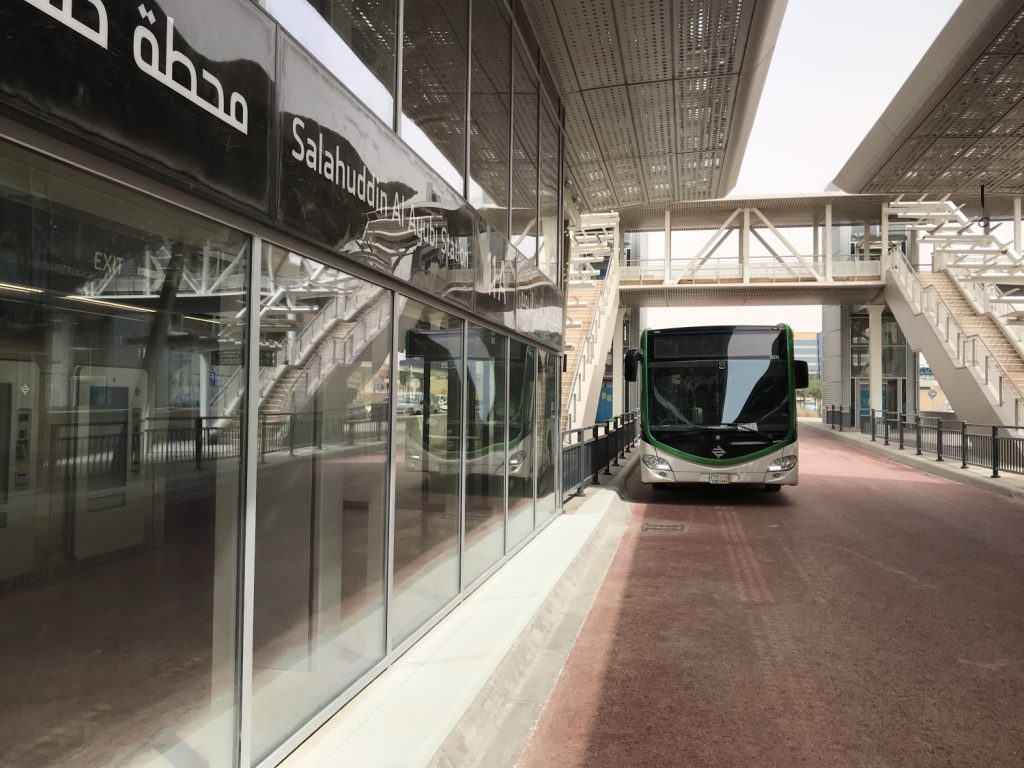
Amenities
The buses have a modern and sleek design. All buses are equipped with on-board Wi-Fi and a smart ticketing system. The buses are spacious and well-adapted to accommodate different passenger groups and are wheelchair accessible. All vehicles and bus stops are equipped with air-conditioning for a comfortable experience.
Safety and Sustainability
Security and Safety
The project utilizes sophisticated operating systems to guarantee the highest safety standards:
- High-definition surveillance cameras.
- Advanced firefighting systems.
- Specialized tunnel safety equipment.
- Direct communication systems with the Control and Operation Center.
Sustainability
The project adheres to advanced global environmental standards, featuring:
- Utilization of locally sourced and 20% recycled building materials.
- Enhanced energy and water efficiency within stations.
- Improved indoor air quality.
- Reliance on renewable energy sources, including photovoltaic panels.
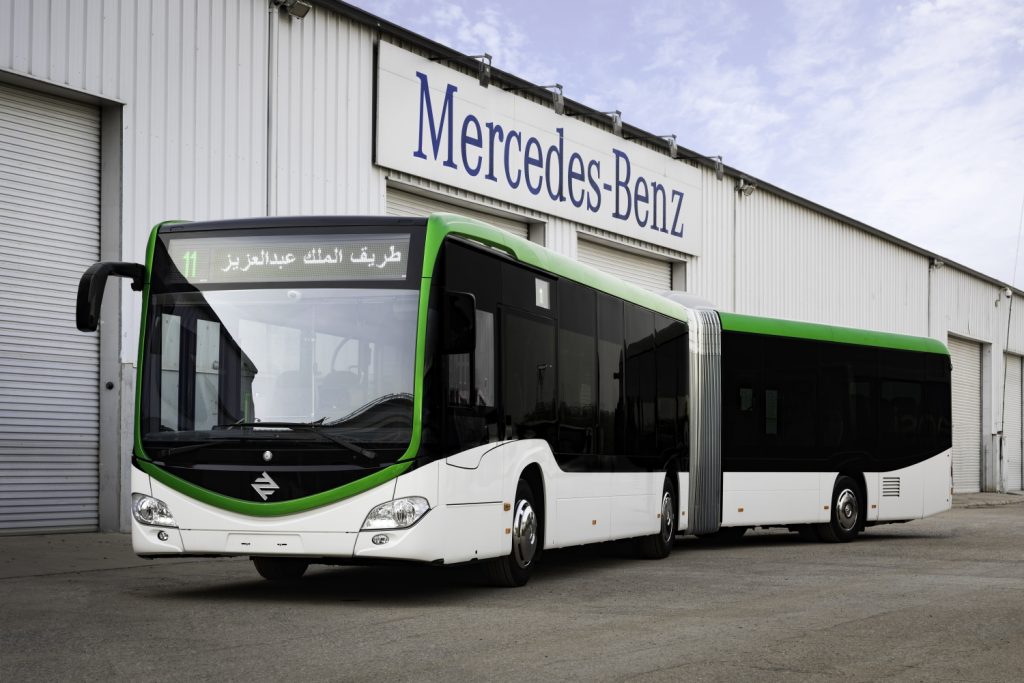
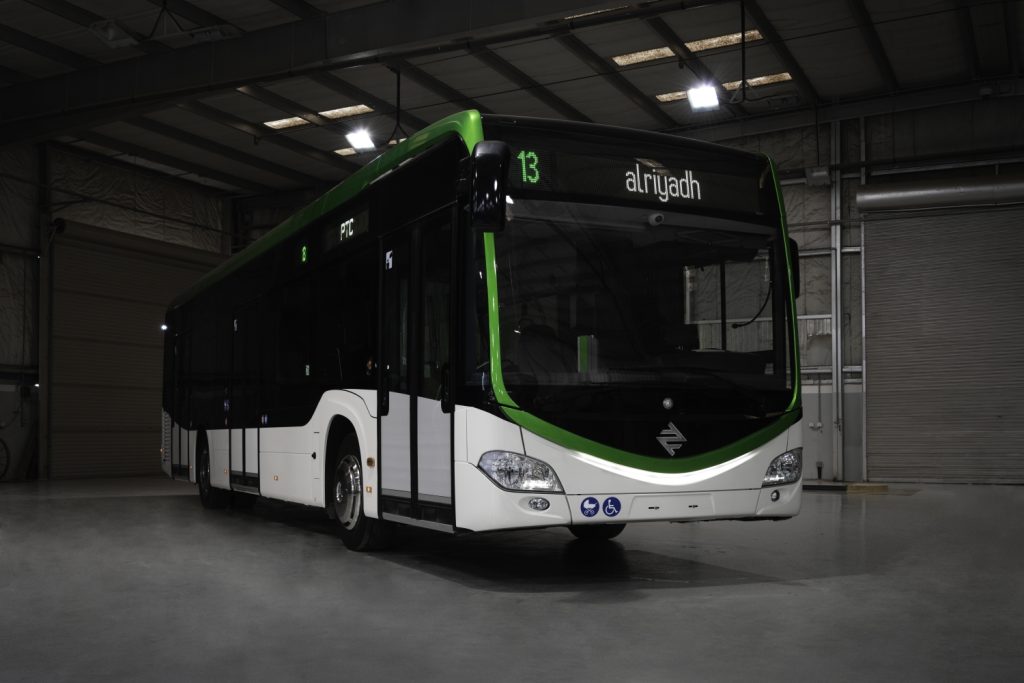
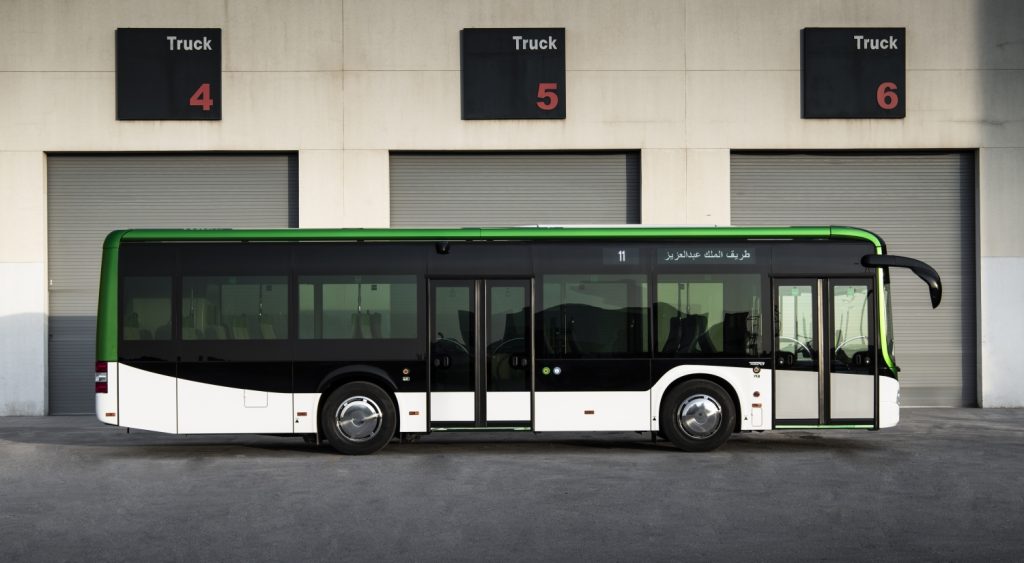
Supporting infrastructure
Public Transport Parks
To support a seamless transition from private vehicles to public transport, the project includes 19 park-and-ride facilities serving metro passengers, complemented by four dedicated parking sites for bus passengers connecting to the metro network. This brings the total to 23 parking locations, with individual capacities ranging from 200 to 600 vehicles per site.
Control and Maintenance
The infrastructure includes:
The Public Transport Control and Operations Center, spanning 60,000 m², which oversees:
- Bus operations and fleet management.
- Real-time communication with drivers.
- Management of passenger information and tracking systems.
- Seamless integration between metro and bus services.
- Administration of the unified ticketing system.
- Monitoring of security and safety across the network.
In addition, the project has:
- 7 Maintenance Centers, housing workshops, warehouses, and offices for technicians and staff.
- 5 Operations Control Centers (OCCs), responsible for precise management of metro traffic, stations, and lines to ensure operational efficiency.
- 2 Bus Maintenance Centers, fully equipped to support all aspects of bus maintenance and operations.
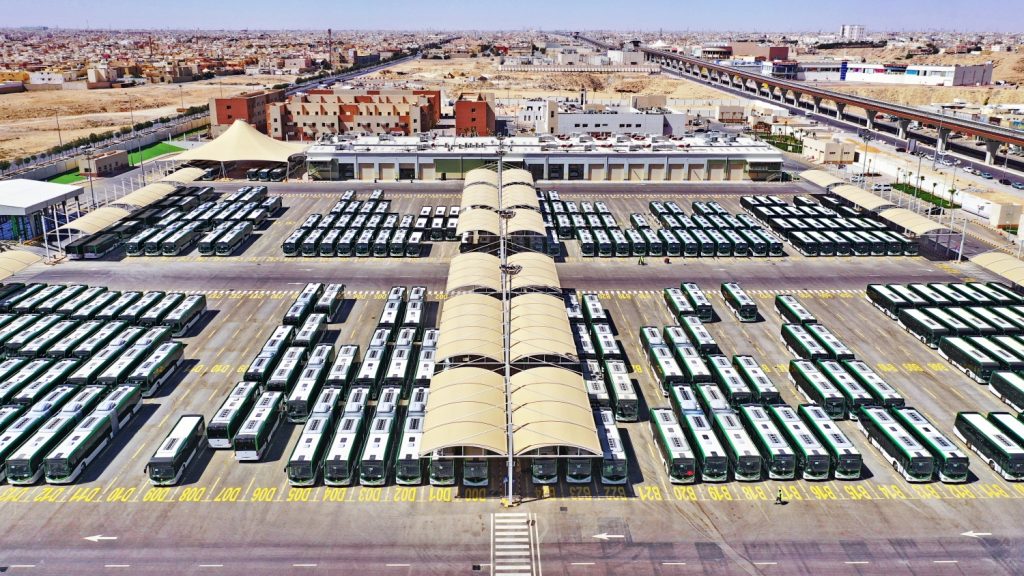
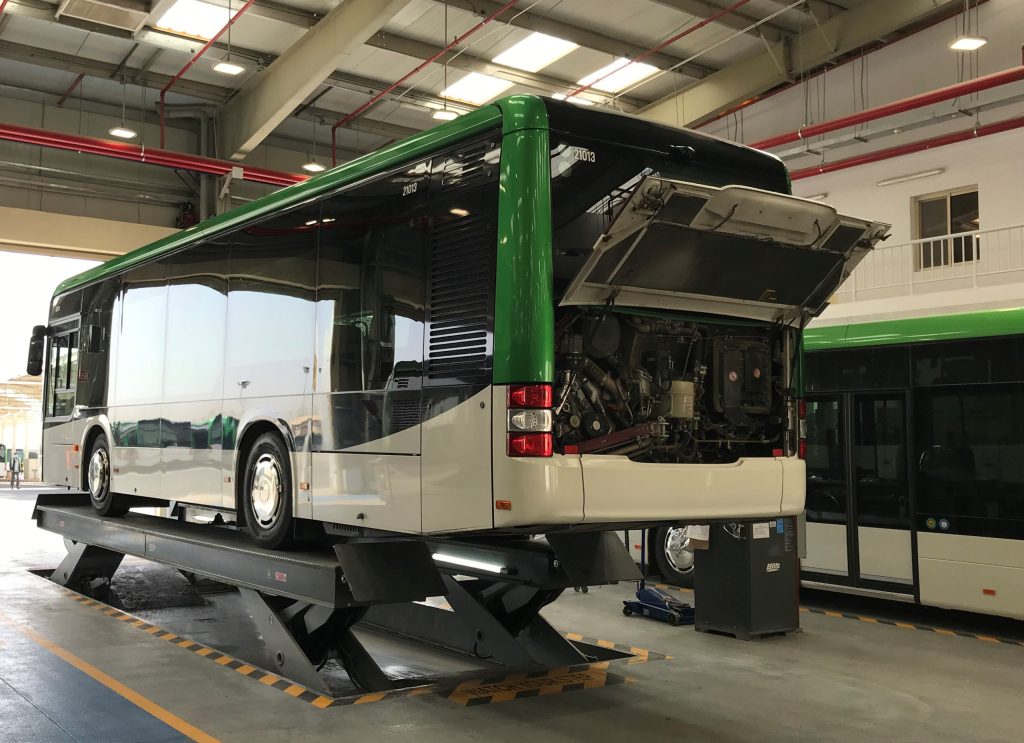
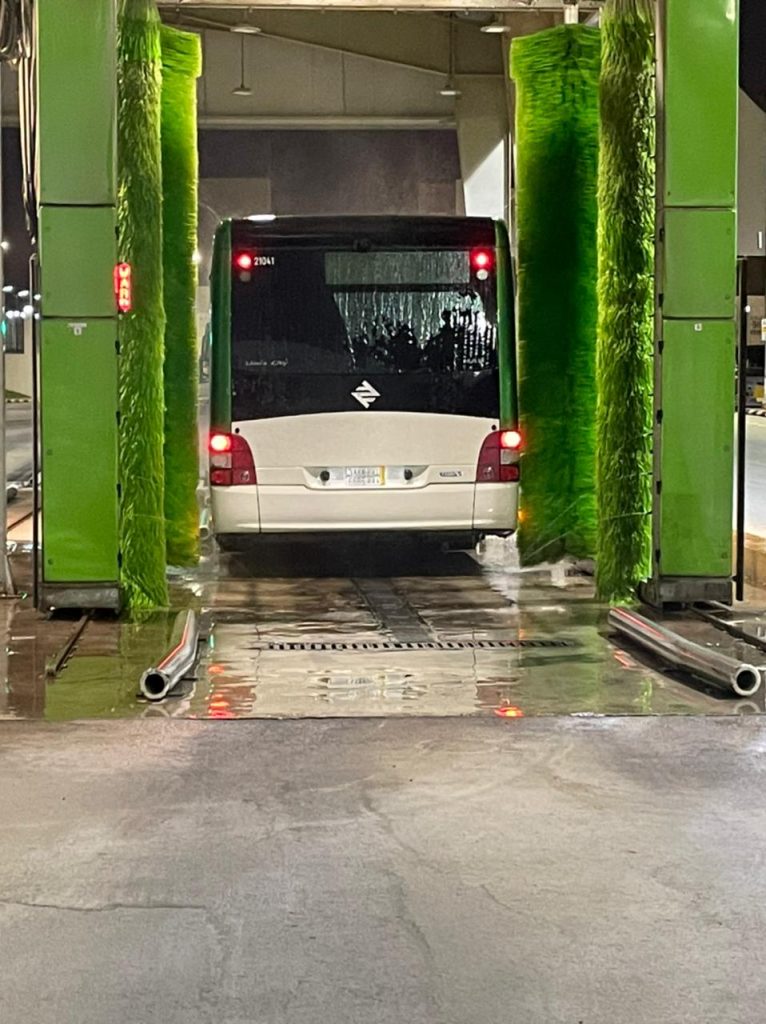
Launch of Riyadh Bus
RCRC has announced the successful completion of the main Riyadh Bus network, marking a significant achievement within the framework of the King Abdulaziz Project for Riyadh Public Transport. The main Riyadh Bus network comprises 54 routes, encompassing a total of 2,145 stations and stops, and is served by a fleet of 679 buses.
Tickets and Payment
To facilitate a smooth mobility experience, the project offers diverse ticketing options and flexible payment methods that maximize convenience and efficiency across Riyadh’s public transport network.
Ticket Fares
- Starts from 4 SAR, valid for 2 hours from the first check-in.
- Free travel for children up to 6 years old.
- 50% discount for eligible groups, such as seniors, students, cancer patients, and families of martyrs.
Payment Methods
- Darb Card
- Darb App
- Self-service machines (Ticket Vending Machines).
- Ticket sales offices at stations.
- Bank cards or mobile payment via “Express Pay Mode”.
Digital Services
Darb App and Website
The Riyadh Public Transport website, along with the Darb App, provide the following services:
- Trip planning.
- Ticket purchasing and reviewing the transaction history.
- Real-time bus tracking.
- Locating parking areas.
- Metro and bus station information.
- Getting updates.
Official Social Media Accounts
Through our official accounts, users can view real-time updates, network news, and schedules. Users can also contact technical support directly via:
- Riyadh Public Transport Official Account on X.
- Riyadh Public Transport Customer Service Account on X.
Download Darb App
